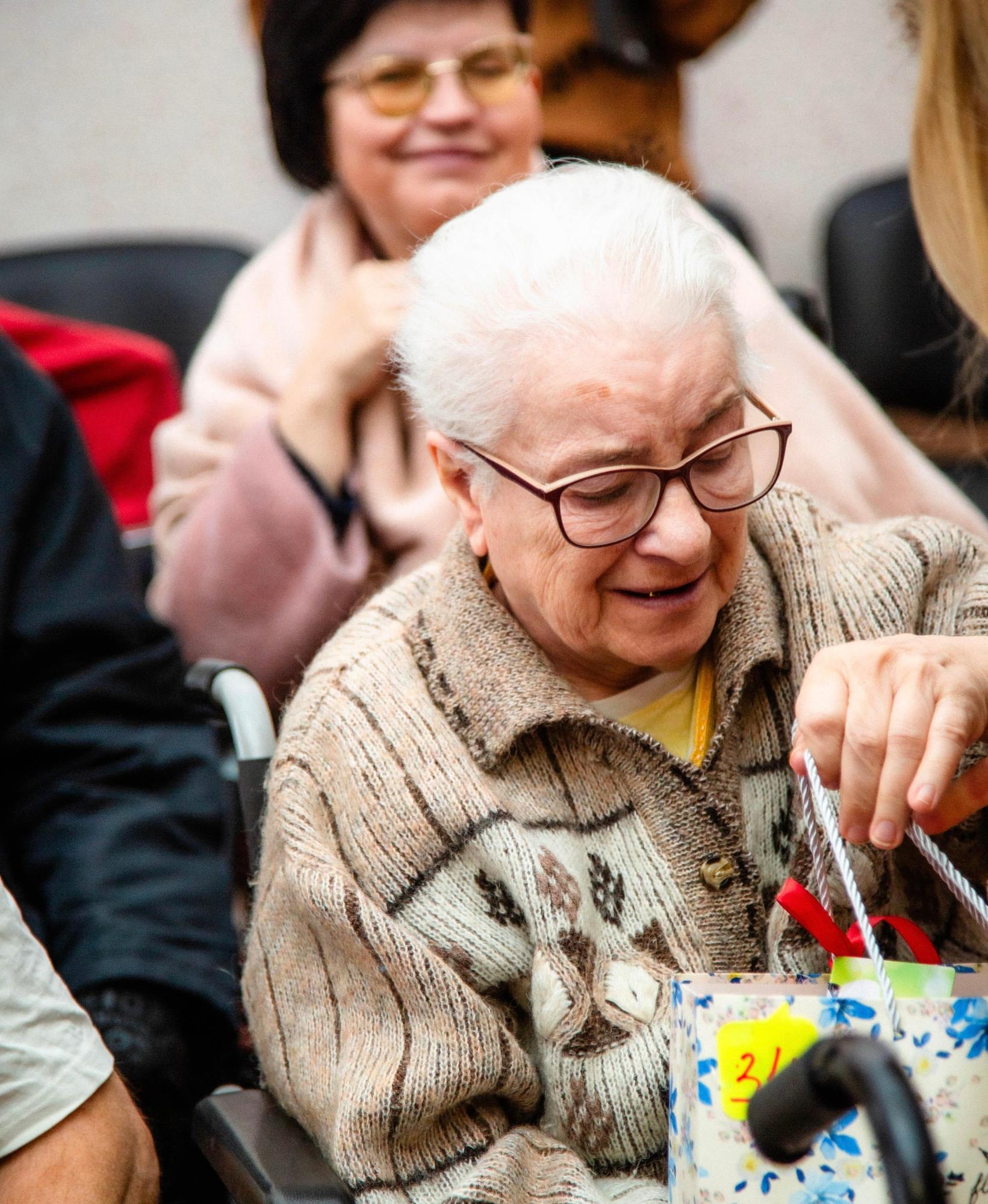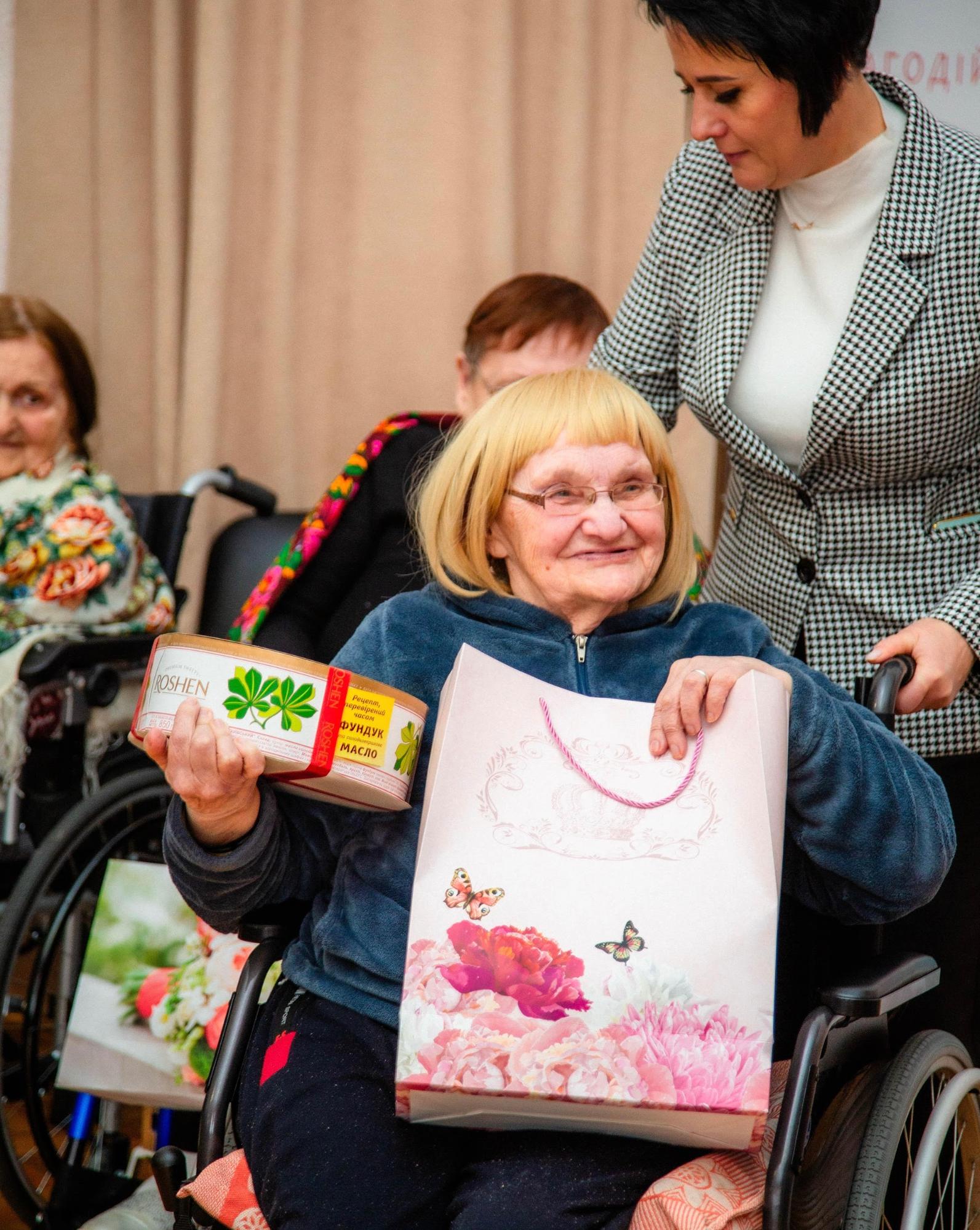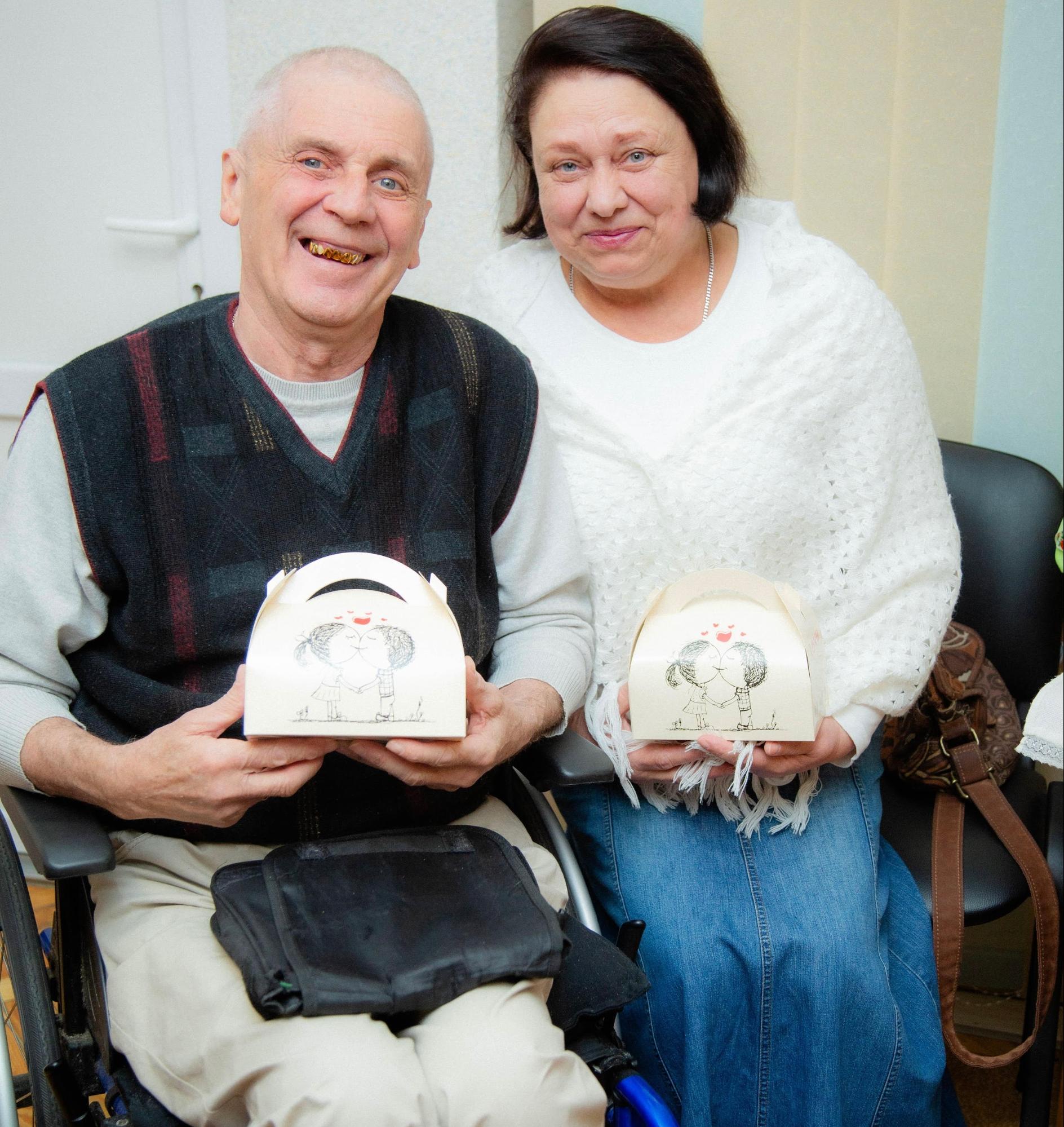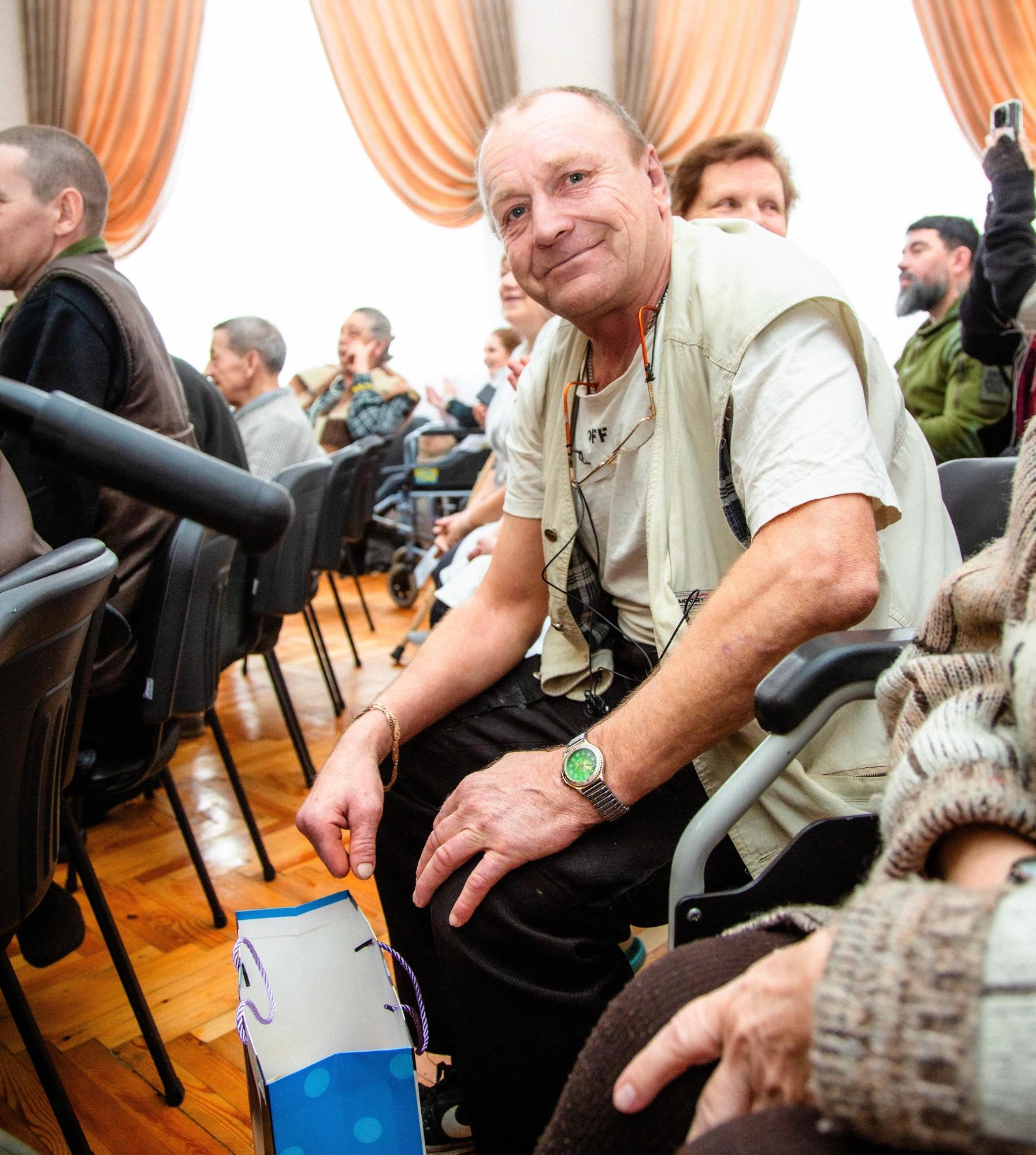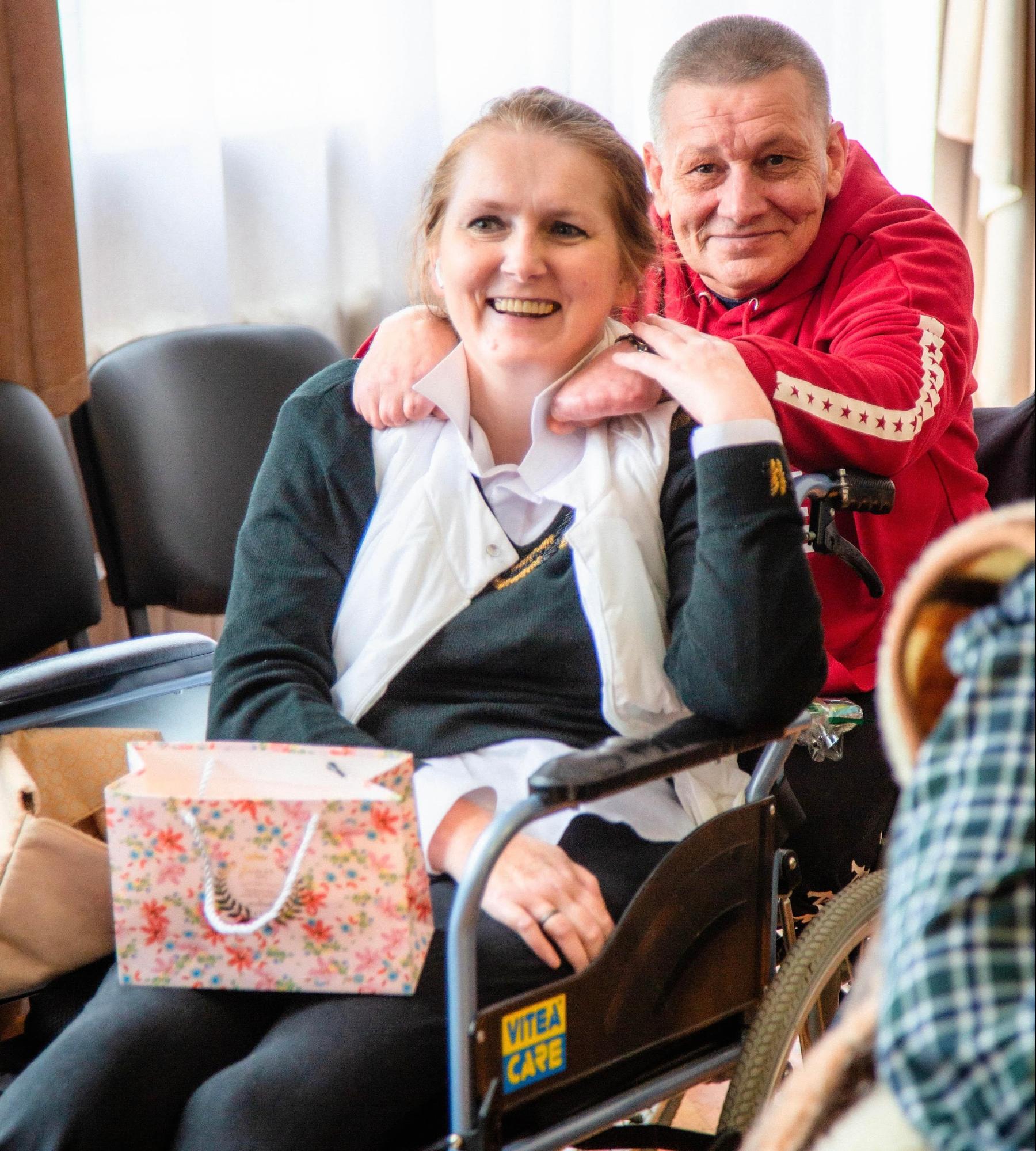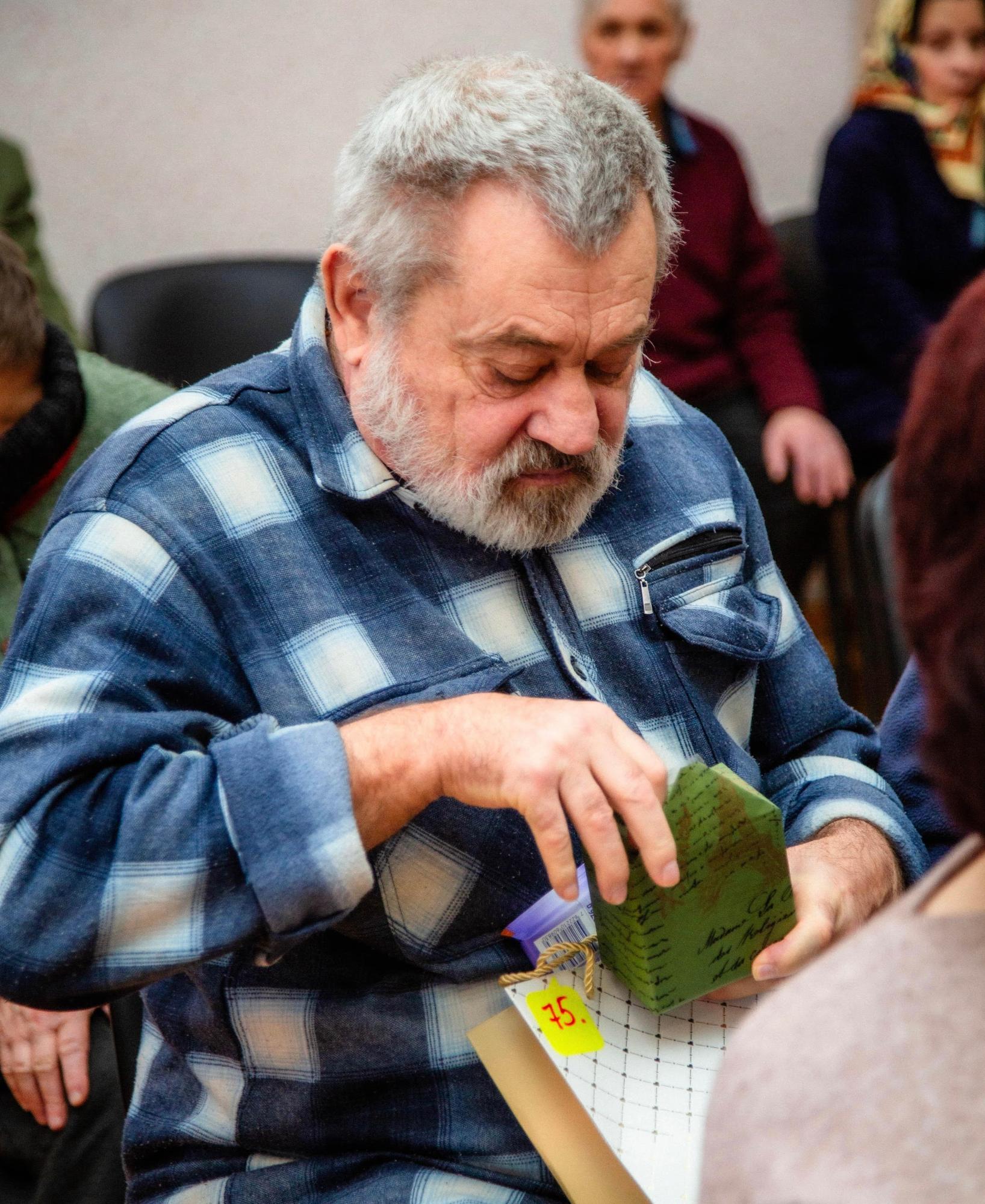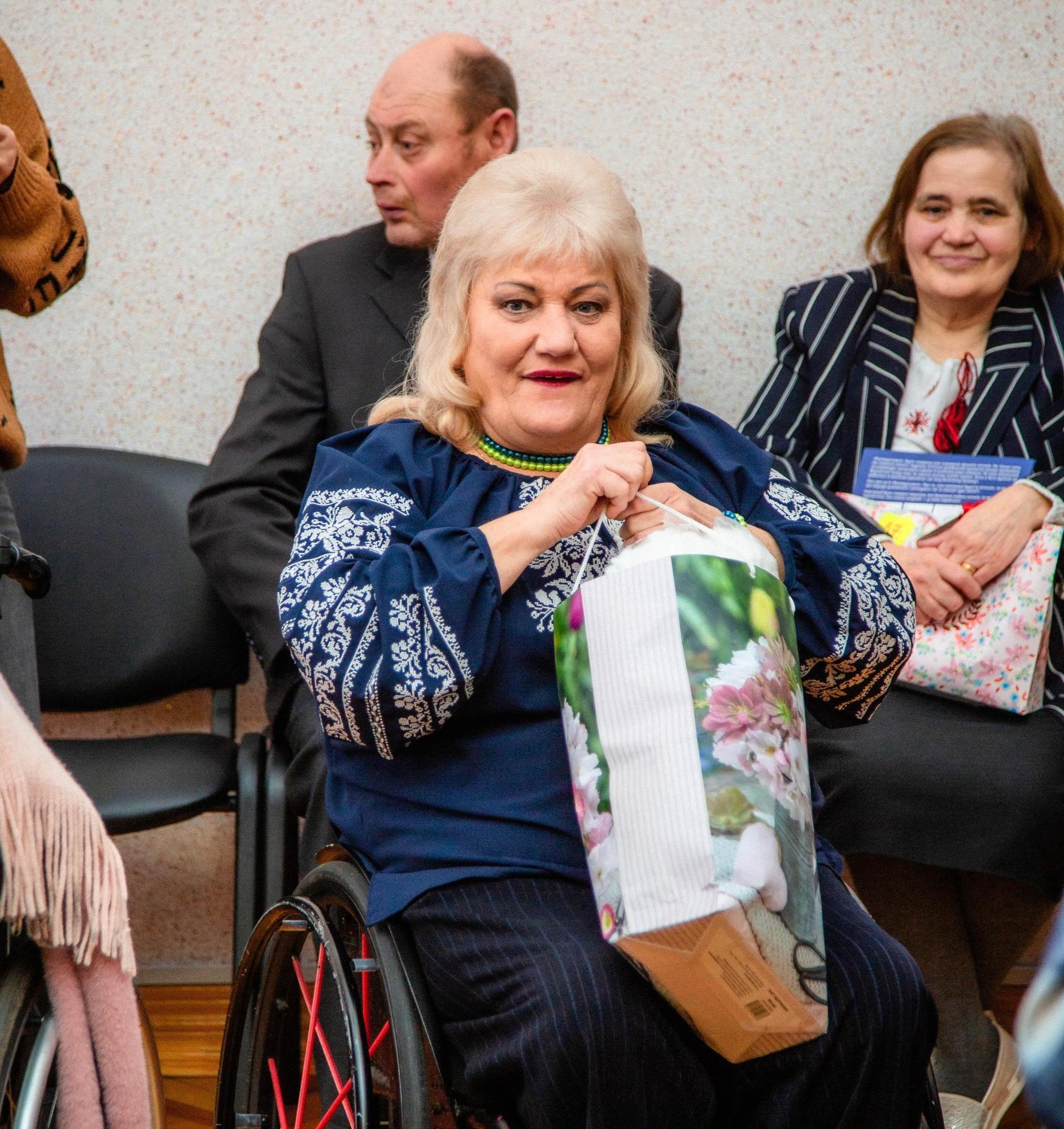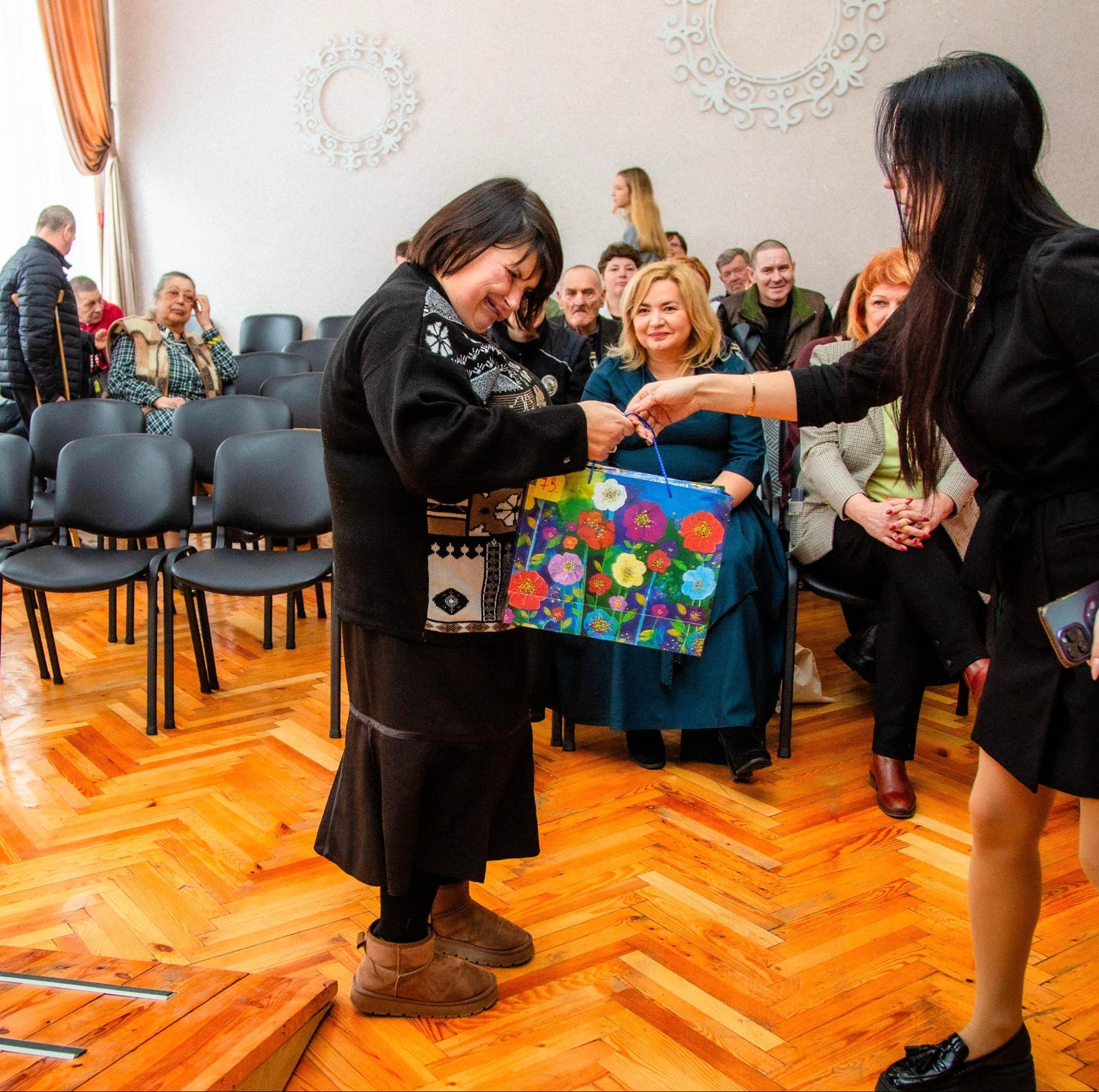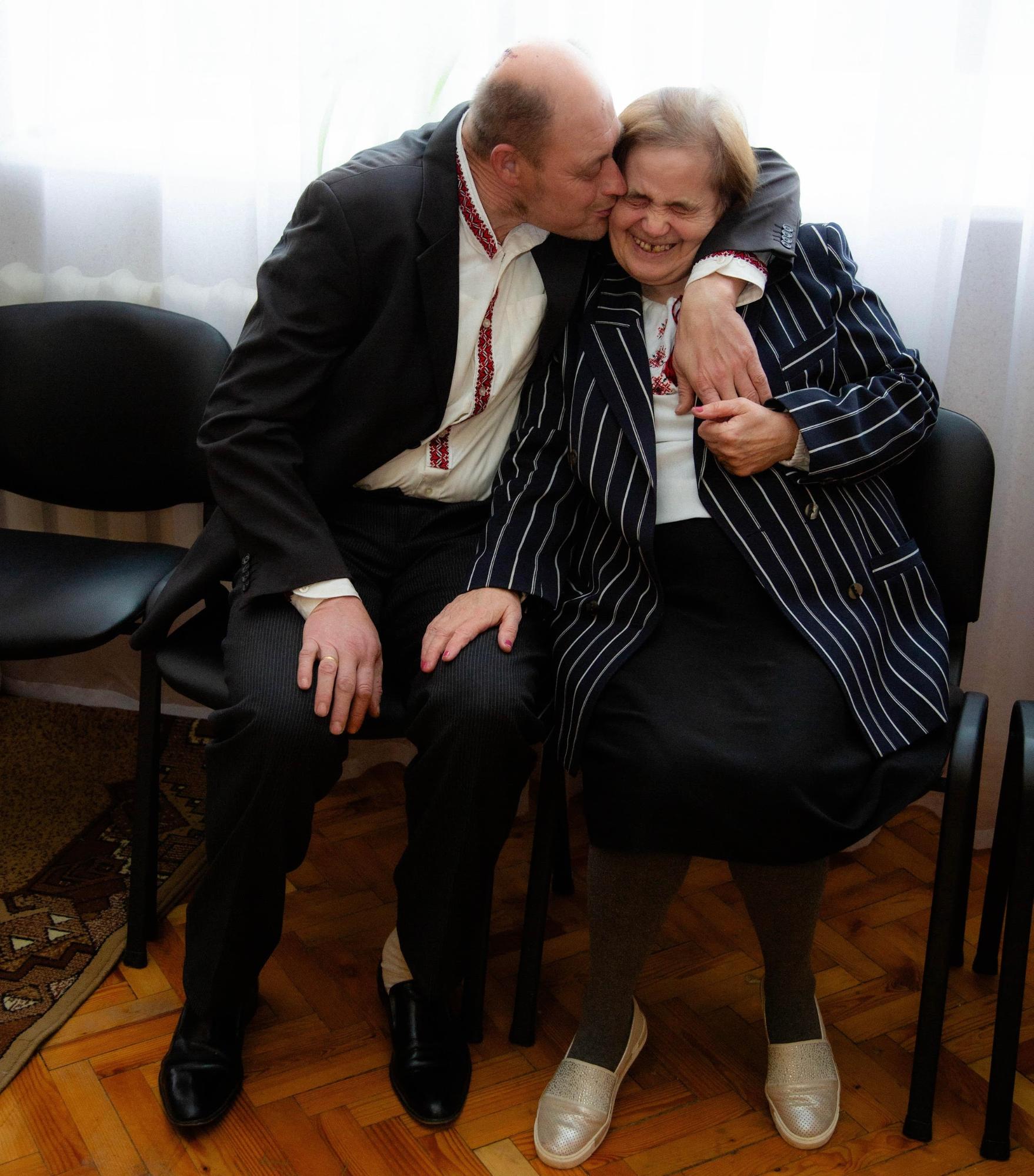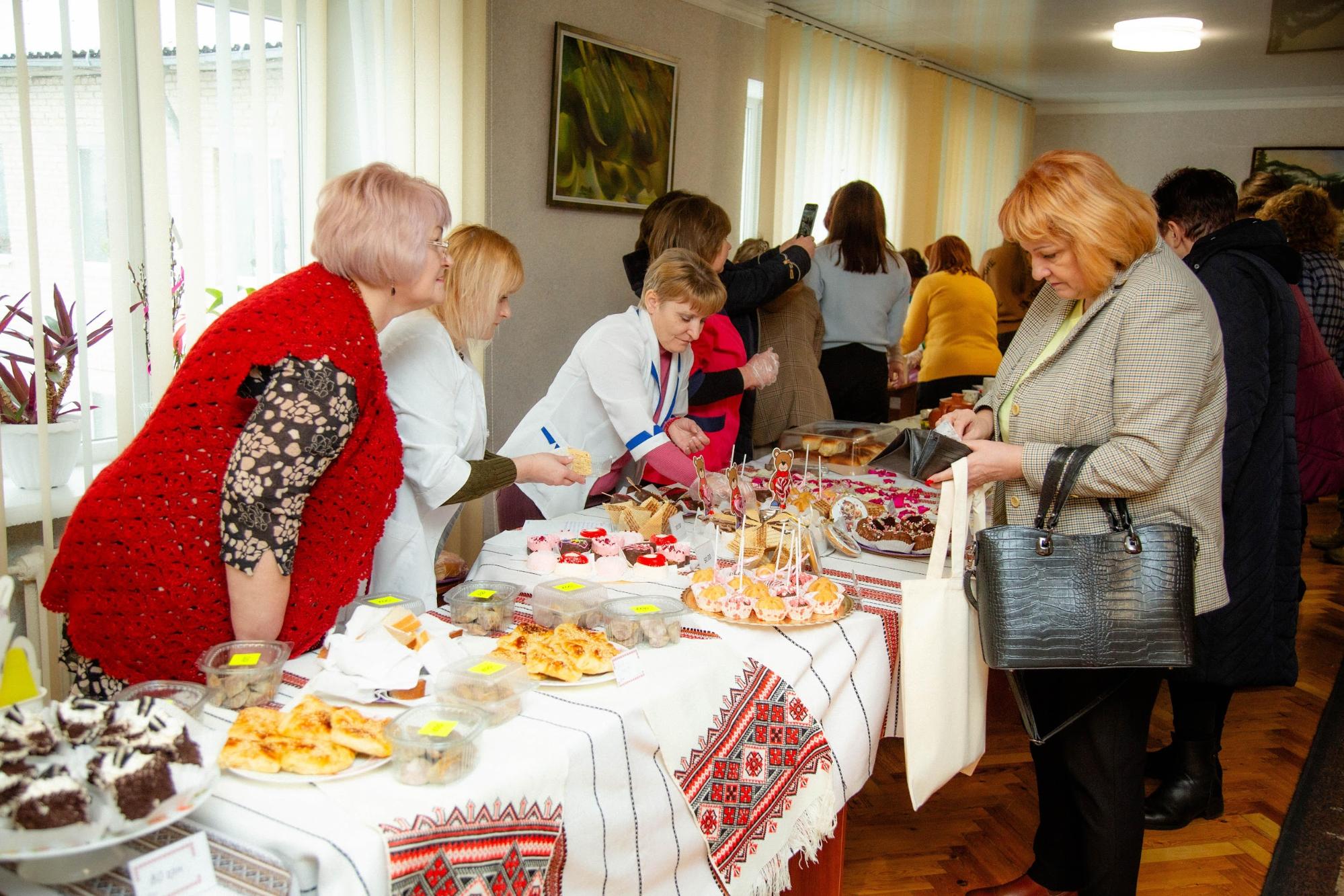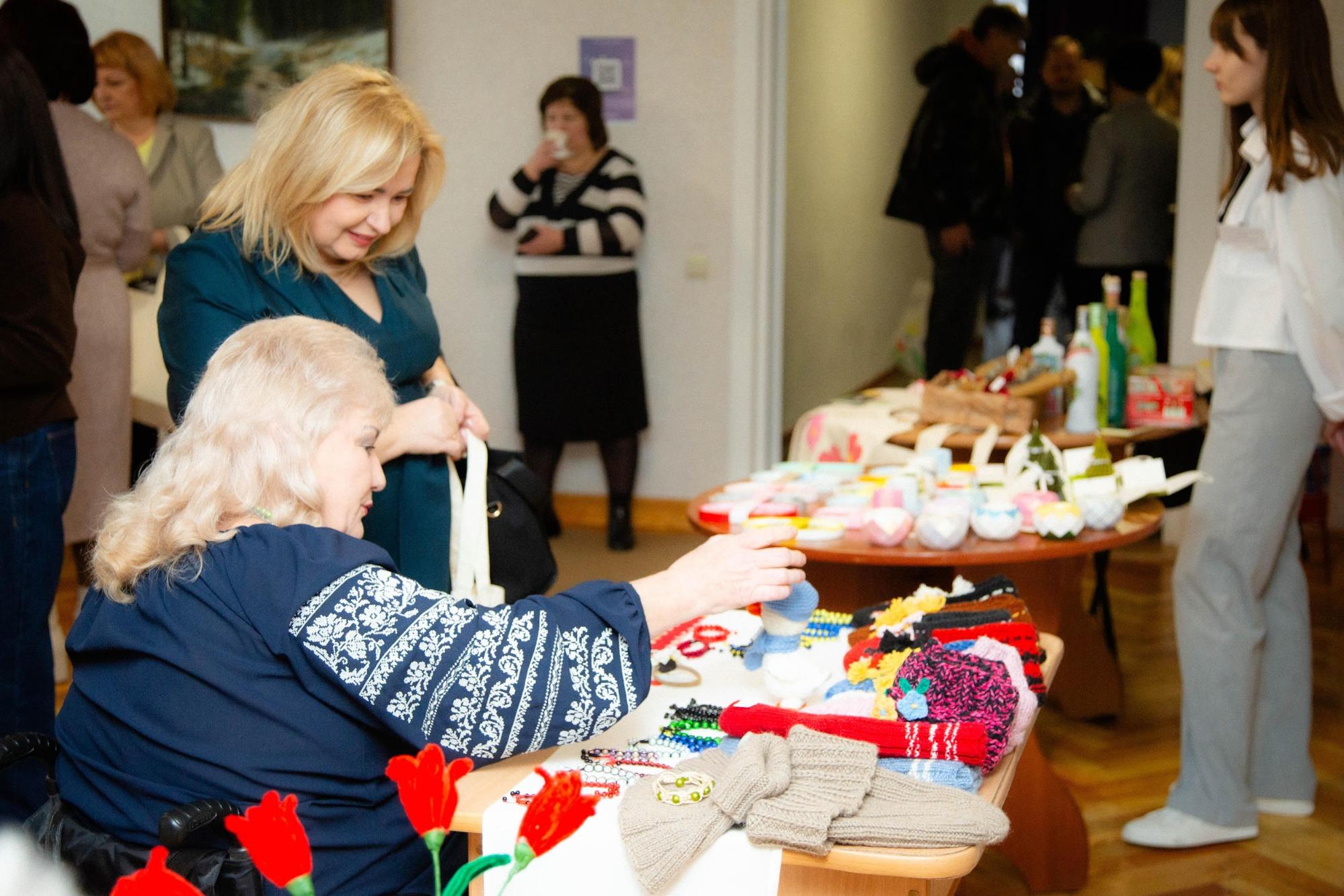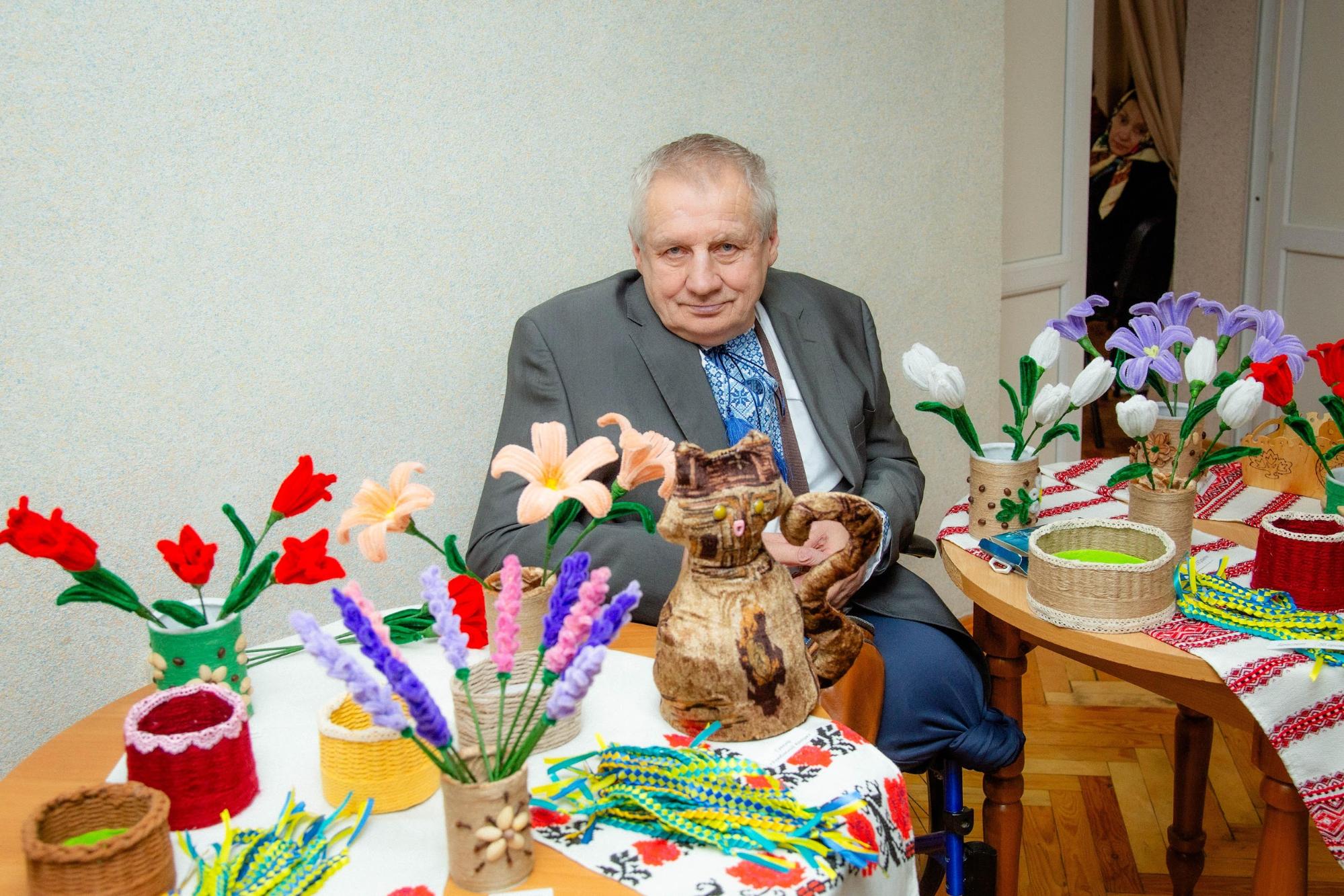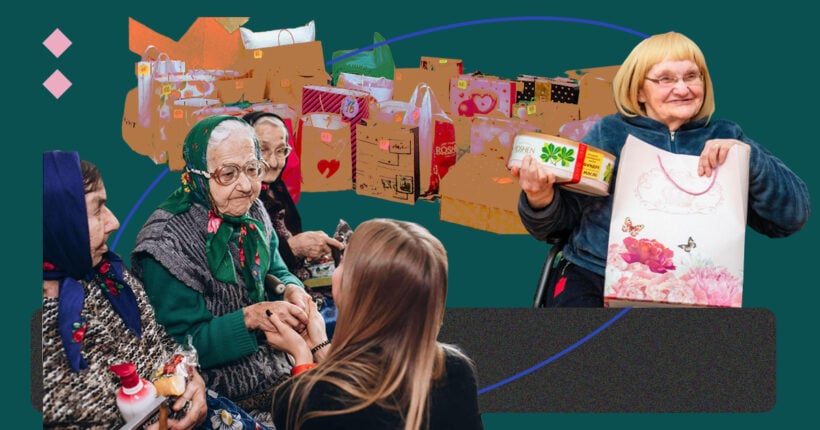
What is the problem?
People living in geriatric boarding houses and residential institutions are often overlooked. They experience a lack of communication, attention, and frequently go without basic household items. Simple wishes—like enjoying a piece of cake or sleeping on new, clean sheets—can become unattainable dreams.
What is the solution?
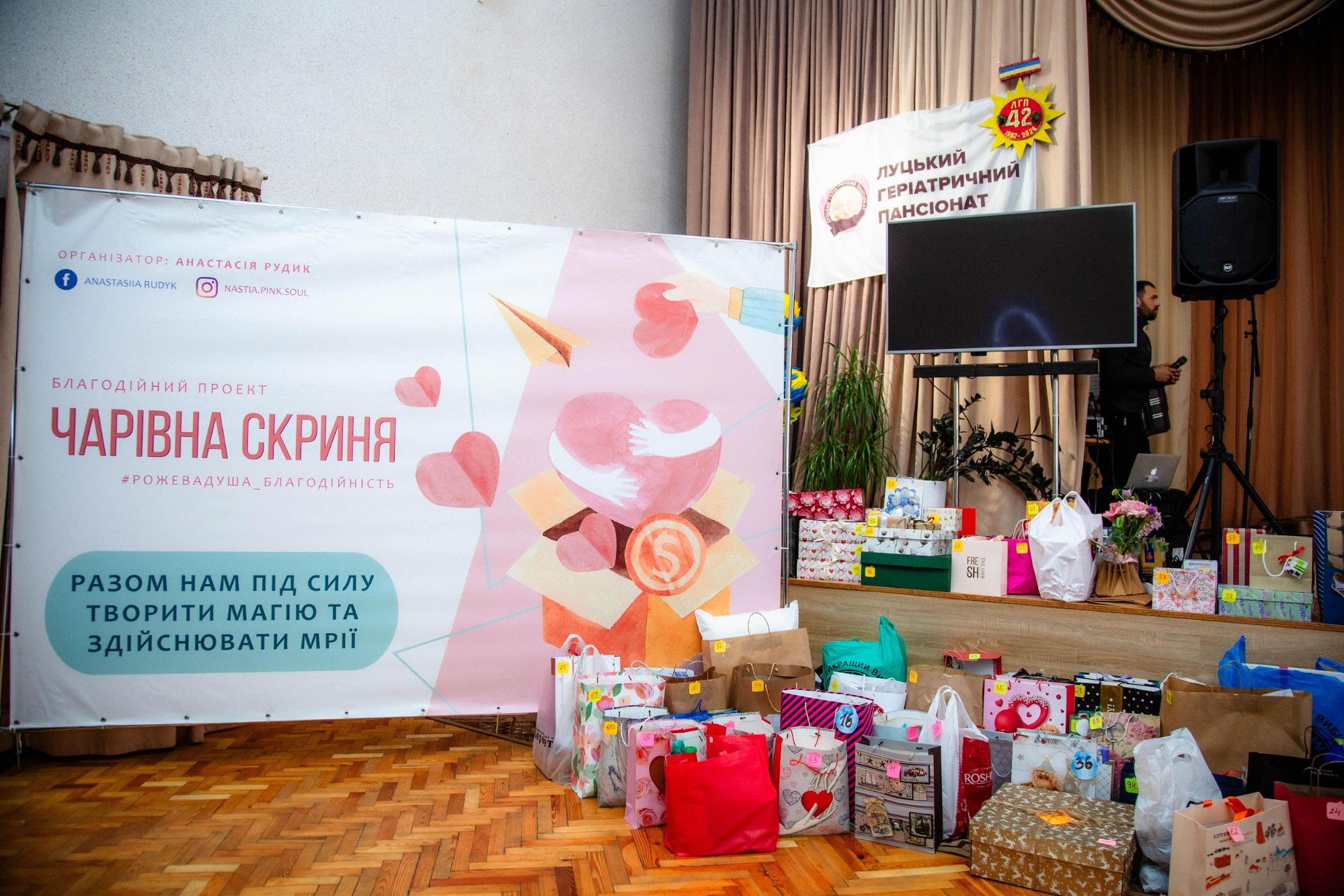
Photo from the archive of Anastasiia Rudyk.
In February, the Lutsk Geriatric Boarding House held the "Make a Dream Come True" campaign, where nearly 100 elderly residents received long-awaited gifts. Each gift was unique, reflecting the simple yet meaningful wishes of the recipients—ranging from lipstick to a tracksuit, from a phone recharge to a wristwatch, and from a hearing aid to fruit and sweets.
The initiative was led by Anastasiia Rudyk, the founder of the "Pink Soul" charitable foundation. The project was supported by the boarding house's management and brought together benefactors, patrons, friends, and followers of Rudyk on social media, as well as local business and government representatives, all working together to make the elderly residents' cherished dreams come true.
How does it work?
"Together we can create magic"
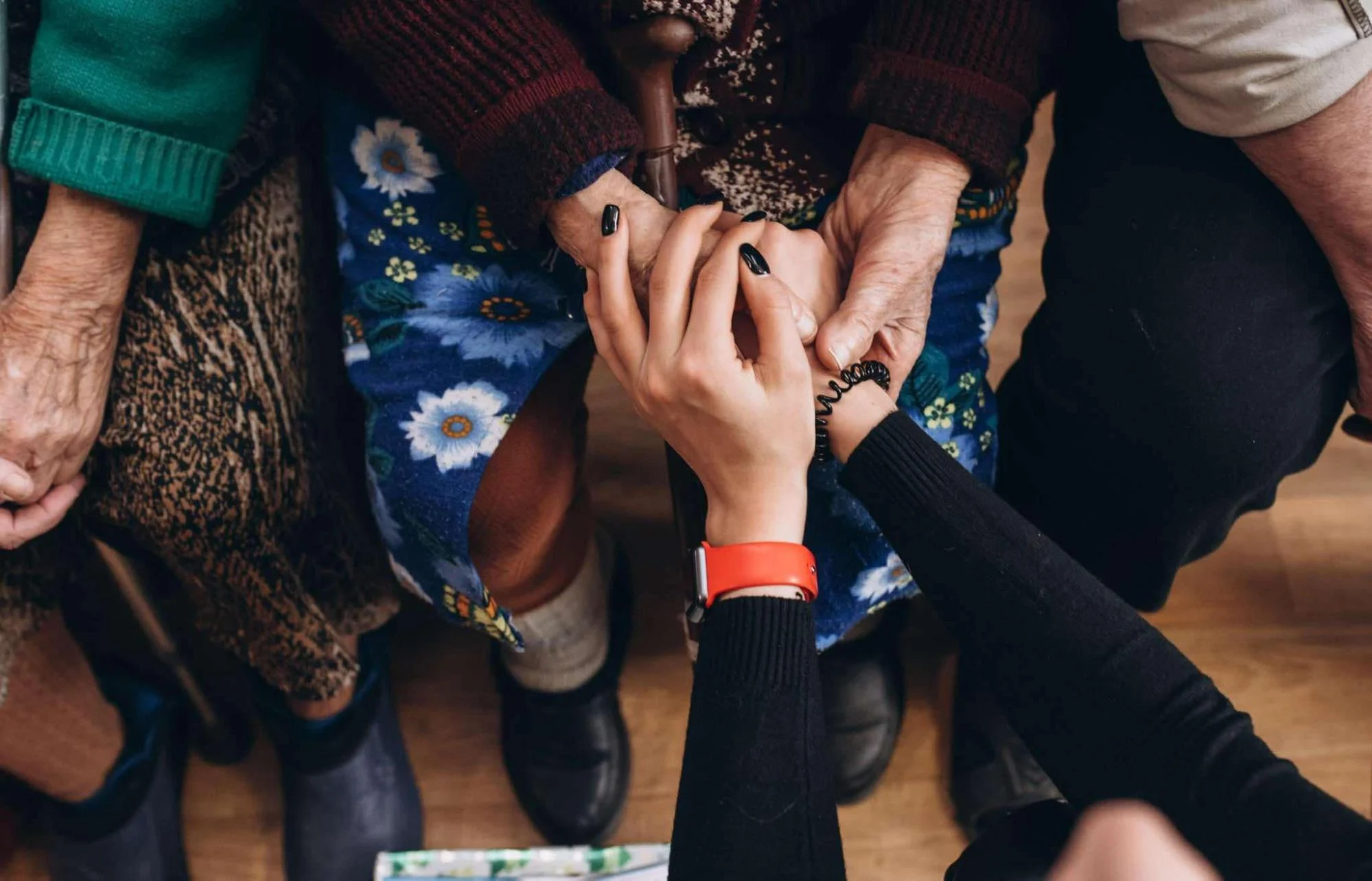
Photo from the archive of Anastasiia Rudyk.
The "Magic Chest — Making Dreams Come True" project has been running since 2020, but the friendship between Lutsk entrepreneur and volunteer Anastasiia Rudyk and the geriatric boarding house began two years earlier. In 2018, after learning about a local institution where elderly people without family live, Rudyk gathered a group of fellow musicians to visit the residents with gifts and carols. This first visit marked the beginning of a partnership that continues to this day.
In 2019, Rudyk received an invitation from the boarding house to an inclusive "autumn ball." While preparing for the event, she noticed a chest that had been used to collect gifts at her wedding. The chest was beautiful and had been sitting unused for a long time. It was then that she had the idea to transform it into a "magic chest"—a way to make the residents' dreams come true.
"I stayed up late, using gift wrap to transform the chest from a wedding design into a New Year's one, giving it a magical look. I also created and printed dream forms for the residents to fill out. After explaining the idea to the director, I handed over the chest and emphasized that every dream should come true," Rudyk recalls.
Anastasia admits that the process of gathering dreams was emotionally challenging: "I drank valerian to calm my nerves and worried every day. There were almost 200 dreams—I kept wondering if people would support me and whether I could make them all come true, even gradually."
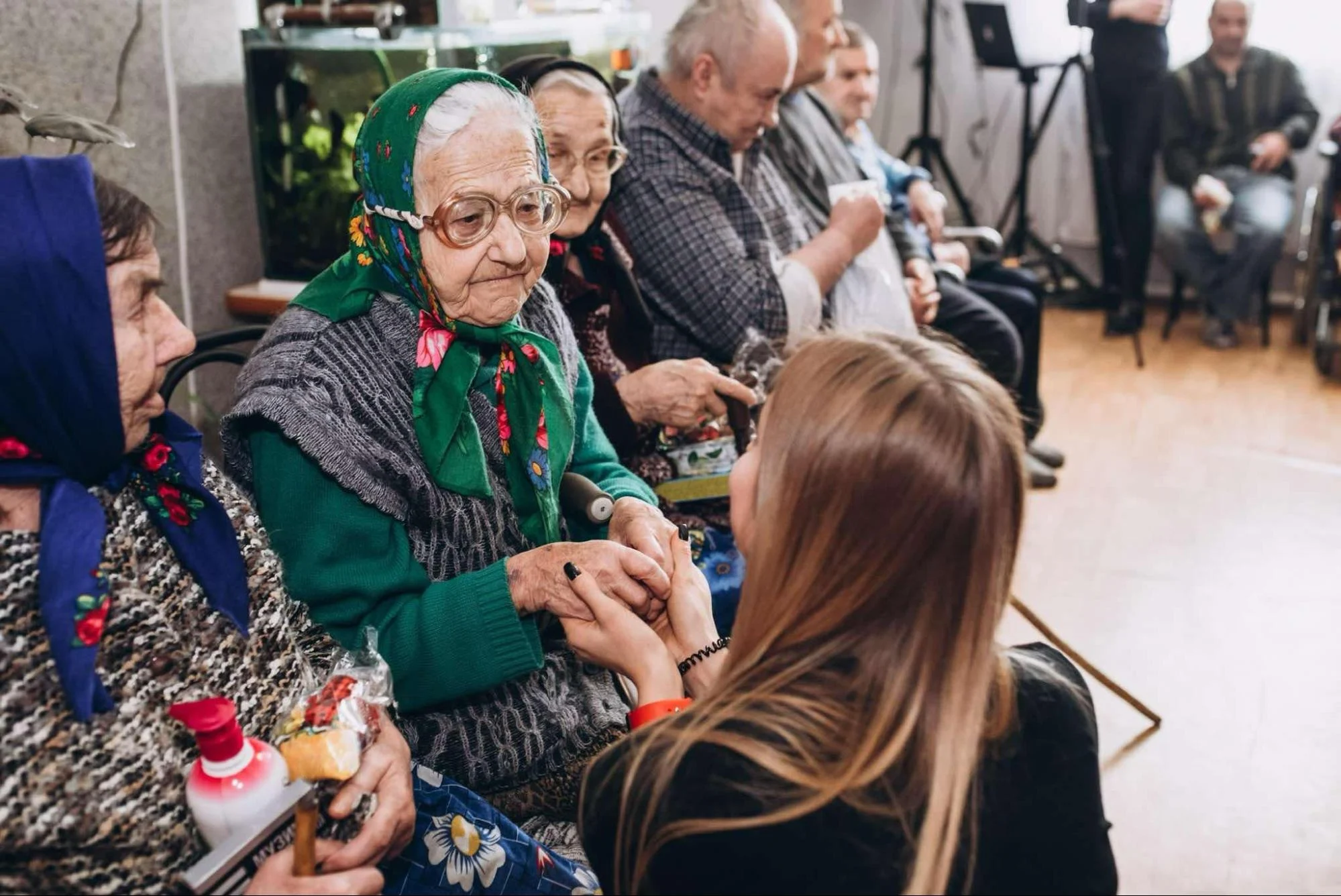
At one of the first events dedicated to fulfilling the dreams of residents at the Lutsk geriatric boarding house. Photo from the archive of Anastasia Rudyk
However, Rudyk's worries were in vain. Her initiative inspired many people to become "magicians"—and during Christmas holidays, residents of the Lutsk geriatric boarding house received the gifts they had dreamed of.
The project quickly grew and even began to travel across Ukraine. In the following years, the "Magic Chest" project expanded beyond elderly residents to include young Ukrainians—such as children with Down syndrome, orphans deprived of parental care, and those facing difficult life circumstances—bringing joy and fulfilling dreams for people of all ages.
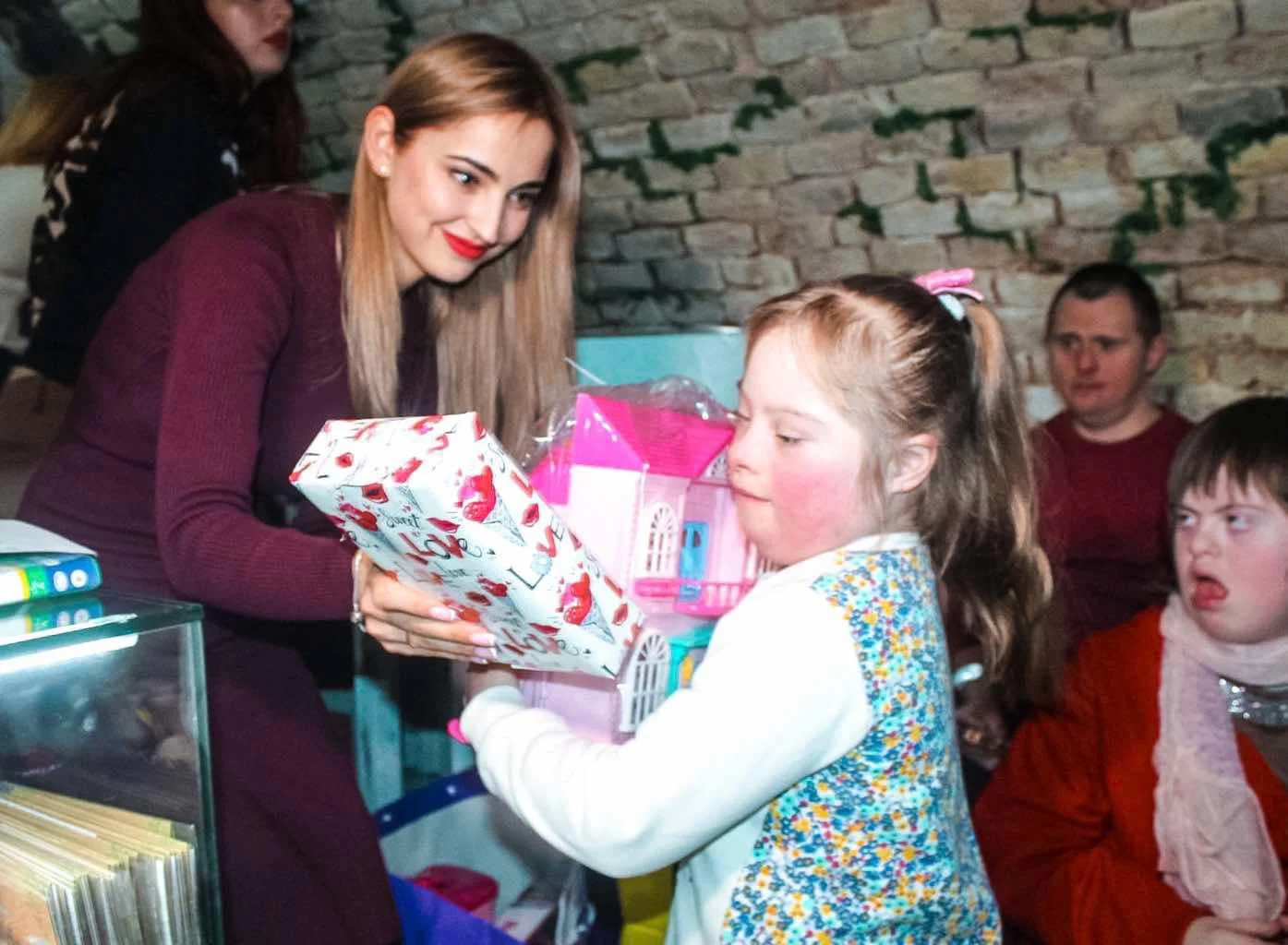
A celebration of children's dreams coming true at the inclusive café "Stare Misto." Photo from the archive of Anastasia Rudyk.
With the beginning of the full-scale invasion, the Magic Chest project had to be put on hold—the Pink Soul Foundation shifted its priority to supporting Ukraine's defense forces. Rudyk decided to resume the dream-fulfillment project only at the beginning of 2025.
"I was very hesitant about whether it was time. But when I received support from the military, whom I help, there were no more doubts," shares Rudyk. According to the volunteer, it was Ukraine's defenders who were the first to respond to her call to help the elderly fulfill their cherished dreams.
Dreams must come true
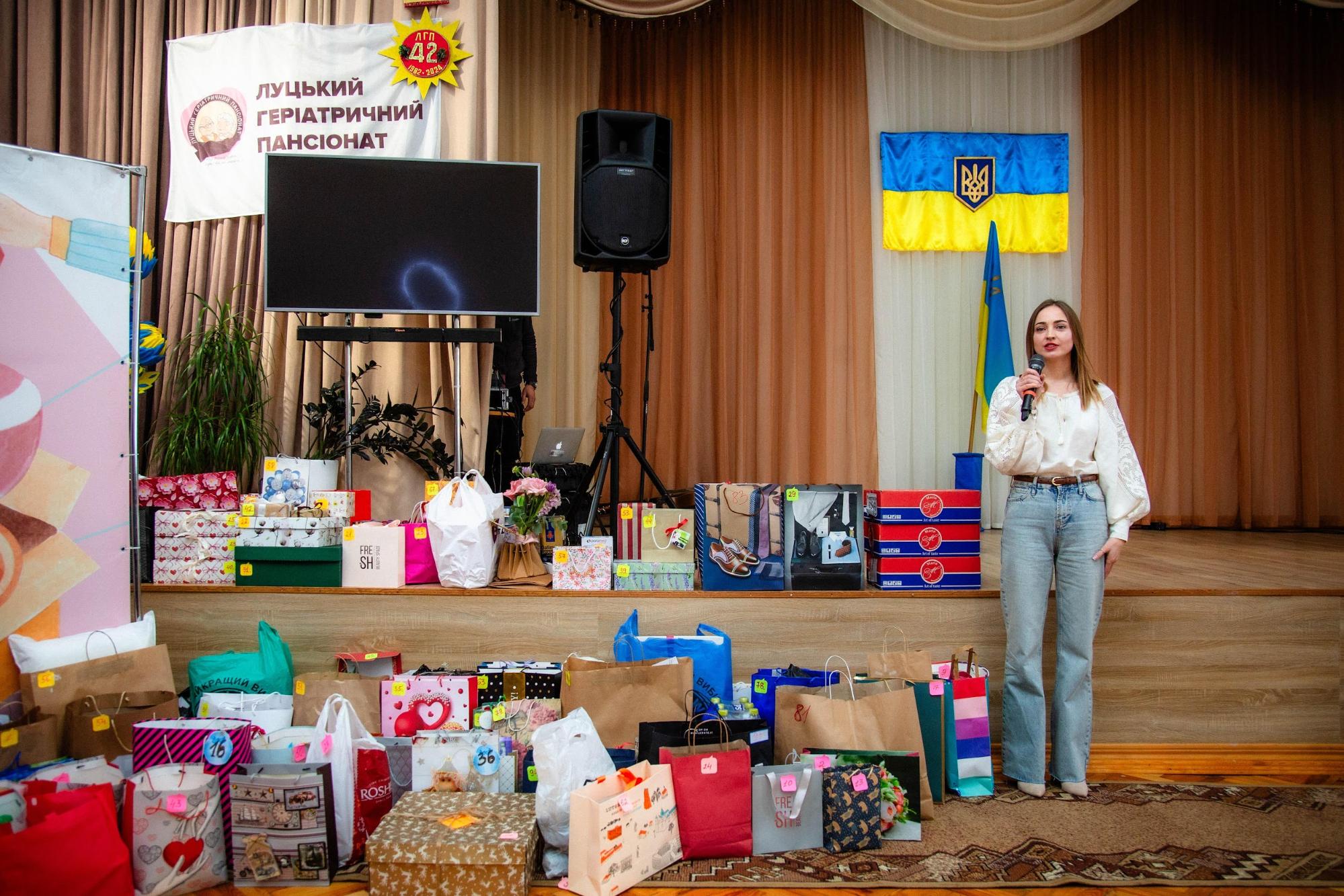
Anastasia Rudyk with gifts. Photo from the archive of Anastasia Rudyk.
Those who have been following the activities of the "Pink Soul" charity for a long time already know the algorithm by which the project works. According to Rudyk, it is very simple:
- The beneficiaries of social institutions selected by the volunteer receive questionnaires where they share information about themselves and describe their dreams.
- Rudyk collects the questionnaires, gets to know the dreamers, and clarifies the details. Each dream is numbered, and a list is compiled, which she then publishes on her social media pages.
- Benefactors interested in fulfilling a dream comment or send a private message indicating the dream's number. They then receive a photo of the questionnaire and information about the dreamer.
- At the agreed time, the gift is delivered to the organizer of the initiative either in person or by mail.
- "My team and I then organize a 'dream come true celebration,' where, in addition to entertainment, people receive the gifts they've wished for," concludes Rudyk.
Everyone who participates receives photo and video reports, which Rudyk also shares on her Facebook page. Those who wish can personally deliver a gift by attending the celebration at the institution.
This year, the response to the project was overwhelming. According to Rudyk, 94 dreams were "claimed" for fulfillment in just two days. Some participants took on not just one but 10 to 20 dreams because they had previously joined the initiative and understood how rewarding it is to make someone's wish come true. Others contributed financially, and several dreams were fulfilled through collective efforts.
Rudyk admits that the biographies and wishes of the "Magic Chest" beneficiaries are often deeply moving. Despite her years of experience reading thousands of questionnaires and witnessing a wide range of stories, some still bring her to tears.
According to the volunteer, the dreams of the elderly vary greatly. Some wishes are costly—such as the desire to hear, see, or have teeth replaced. In these cases, benefactors purchase hearing aids, pay for diagnostic procedures, or cover the cost of surgeries. Other dreams are surprisingly simple—like tasting pizza for the first time, enjoying homemade fried potatoes, or sipping a cup of good coffee.
Some residents dream of new clothing items: a scarf, sneakers, sportswear, or even a wedding suit—a wish fulfilled this year for a man planning to get married. Others long for experiences, like seeing the evening lights of Lutsk's park or visiting their childhood village to pay respects at their loved ones' graves. Through the "Magic Chest" project, these dreams come true.
However, some dreams are much harder—or even impossible—to fulfill. Many residents hope to reunite with children or grandchildren who have cut off contact, to live again in their family homes, or to see beloved pets. Yet, even seemingly unattainable dreams can sometimes come true.
Rudyk recalls a particularly moving story of reuniting a resident with his children:
"Oh, what emotions it was! And then that elderly man died, and it was his last dream that came true. He was happy, and I am very happy that I managed to do this," she shares.
Does it really work?
Zarina Datsyk is one of the project's benefactors. According to her, she found out about the "Magic Chest" by chance — she saw a post on Facebook by the project coordinator.
"I had heard about this project before, but after the fact, I didn't know any details. The first thing that struck me was the dreams of the elderly. In our daily lives, full of various opportunities, it's usually not so difficult to buy a T-shirt or a tracksuit, to buy fruit or sweets. And there were the most such dreams, and this caused ambivalent emotions: joy, sadness, shame. Shame because, unfortunately, we are not always able to provide our fathers, mothers, grandmothers, and grandfathers with a decent old age," says Datsyk.
She shares that when she read the list of wishes, she immediately imagined "pictures" of the lives of elderly dreamers—the vicissitudes of life, challenges, disappointments, and losses: "I realized that I just wanted to be included in this process—the process of giving pleasant moments and making dreams come true," recalls Datsyk.
She chose a rather simple dream—in her ward's letter, it was written: "fruit, persimmons." It was very touching because one could have asked for much more. Datsyk recalls how she very carefully prepared the dream—it was a huge, beautifully decorated box with various fruits and, of course, a lot of persimmons: "I wanted my heroine to try different, different fruits. Who knows, maybe she had never tasted some of them before."
In the volunteer's opinion, there should be more such or similar projects that are aimed not only at fulfilling dreams but also at simple emotional communication and mutual support. And giving a dream to someone who is nearby is one of the best feelings.
"If someone has not yet become a dream come true, I highly recommend it—you will never forget this feeling. Believe me, the desire to do good is addictive. Many, having fulfilled a dream, continue to communicate and help the elderly. Thus, our project has a continuation," joins Rudyk.
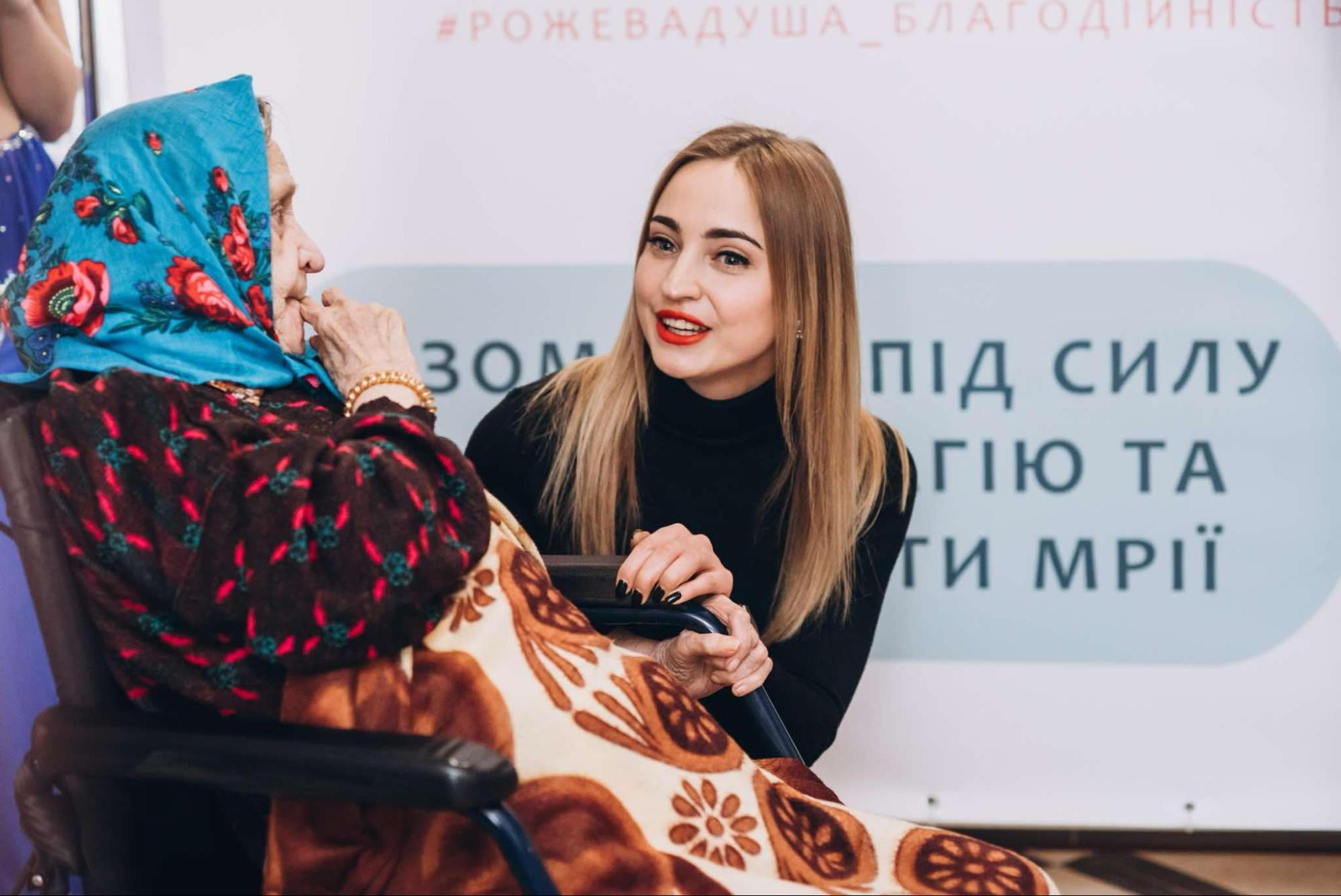
At the celebration of dreams coming true. Photo from the archive of Anastasia Rudyk
She notes that this project is not only about dreams. Its mission is to spread the culture of volunteering, to make the world a better place, and to show people that everyone can help—it is not necessary to have a large fortune. It is also about love, the connection between generations, and the opportunity not only to give but also to receive warmth.
"Two months ago, my only grandmother, whom I loved infinitely, died. But I say that I will still be a granddaughter, probably until my very old age. Because now I have hundreds of grandmothers under my care, whom I love very much, and it is mutual for us," says Rudyk.
Even more useful solutions!
Many residents of the boarding house wrote down a dream that is shared by all of us—peace and victory. To help bring this dream closer to reality, they organized a charity concert and fair during the celebration of dreams.
The fair was held to support the fundraising effort for a Mavic 3T night drone for the fighters of the 100th Separate Mechanized Brigade/Battalion Medical Center/UAV platoon (the collection is still ongoing, and you can join it via this link). A total of 30,000 hryvnias was raised during the fair. The residents crafted ceramic items, wove bracelets and amulets, painted reusable shopping bags, made motanka dolls, and much more. Employees of the boarding house also prepared treats for the event's guests—offering a variety of delicacies, desserts, and drinks.
The "Magic Chest" project continues its work. Rudyk has already sent questionnaires to two more institutions in the region where elderly people without family support live. The volunteer emphasizes that the biggest challenge these people face is loneliness and a lack of attention—simple human connection means the world to them. And each of us has the opportunity to help.
If you feel inspired to get involved or would like to start a similar project in your city, you can contact Anastasia Rudyk through her social networks (Facebook or Instagram). Perhaps you could become someone's grandchild—or simply a friend.
The project "Strengthening Media Resilience in Ukraine" is implemented by the Irondel Foundation (Switzerland) in collaboration with the Institute of Regional media and Information (IRMI, Ukraine). It is funded by the Swiss Solidarity Foundation.



